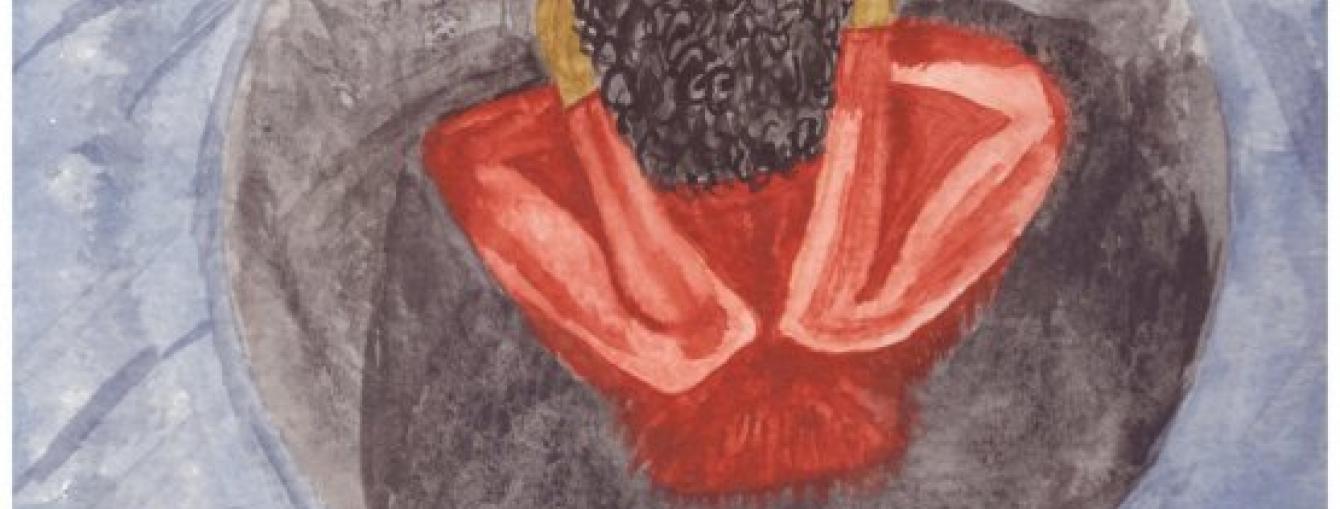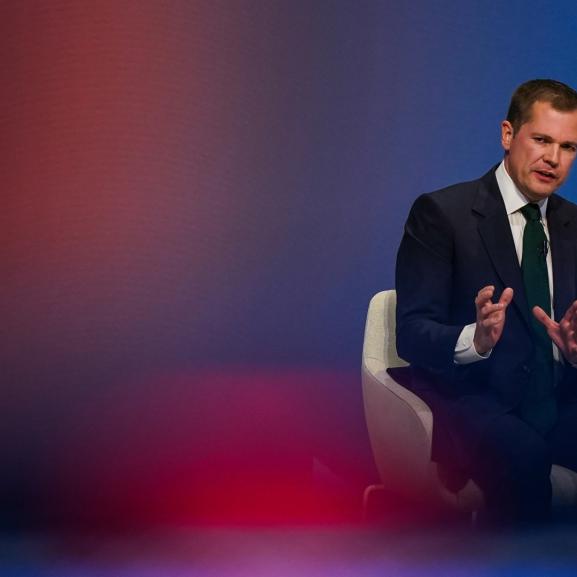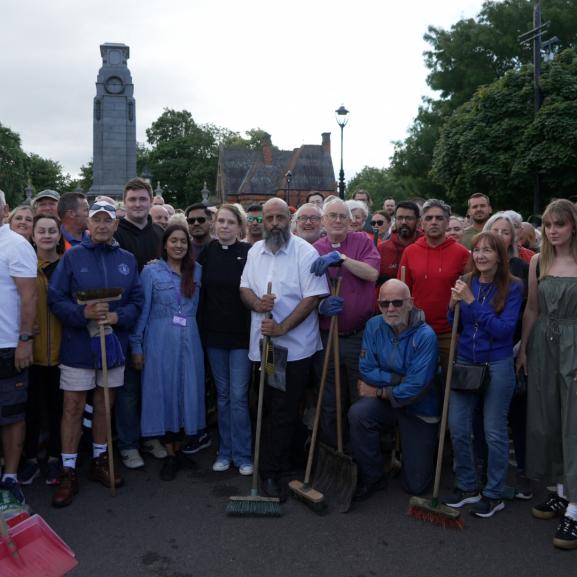The UN must not turn a blind eye to torture in Iran
Nasrin Parvaz, a member of Survivors Speak OUT, explains why the international community must put more pressure on the government of Iran to stop torture and other human rights abuses.
The deteriorating situation in Iran will be prominent on the agenda of the 37th session of the UN Human Rights Council in Geneva. Before her recent tragic death, Special Rapporteur Asma Jahangir delivered a detailed account on human rights abuses, including torture and amputation, in the country.
Torture, like many other measures in Iran, is meant to silence you. This is especially so if you are a woman. For those of us who manage to escape, we face a long struggle to regain our voices. Over the years I have discovered poetry and painting as a way to make sense of my experiences and to try to tell people about torture and my detention in Iran.
My painting used to illustrate this blog shows how this prisoner is being watched from the peephole while she covers her ears to blot out the sound of others being tortured.
Torture, like many other measures in Iran, is meant to silence you. This is especially so if you are a woman. For those of us who manage to escape, we face a long struggle to regain our voices. Over the years I have discovered poetry and painting as a way to make sense of my experiences and to try to tell people about torture and my detention in Iran.
Freedom from Torture helped me to find my voice and I welcome the spotlight they shine on the use of torture in Iran through their report, Turning a blind eye: Why the international community must no longer ignore torture in Iran.
The report describes the torture of, and its impact on, 69 people, who sought asylum in the UK and were supported by Freedom from Torture. This is a tiny percentage of the many thousands who have had similar experiences in Iran. As the evidence in the report highlights, repeated arrests and harassment are part of people’s lives. Activists in particular are arrested many times and often spend years in prison.
In the few months since the report was published, events have moved very suddenly and rapidly. There were demonstrations all over the country, even in small towns. Many were of workers who had not been paid, sometimes for more than a year. Without wages, how can they feed their families? Yet thousands of demonstrators were arrested. Torture remains endemic. There are reports of young and older people tortured to death in custody and their families being told that they had committed suicide in prison.
Over 100 women have been arrested for not wearing the compulsory hijab (covering their hair). There is photographic evidence that at least one was tortured, with eighty lashes. Another woman peacefully protesting against the hijab was pushed from her stand by an Islamic guard and was arrested, although her ankle had been broken.
In 1990, when I was in Evin Prison in Tehran, United Nations human rights inspectors visited. Our families all wanted to know what we had said to the inspectors and what they had said back to us. They could not quite believe us when we explained that we had not met the inspectors and that a new wall had been built across corridor 216, to conceal us from them, and if the inspectors had asked for us by name, they must have been fobbed off. The inspection had been a piece of political theatre.
Over 100 women have been arrested for not wearing the compulsory hijab (covering their hair). There is photographic evidence that at least one was tortured, with eighty lashes. Another woman peacefully protesting against the hijab was pushed from her stand by an Islamic guard and was arrested, although her ankle had been broken.
Since my detention, Evin Prison has repeatedly been in the news. There are so many stories of mistreatment and other horrors but it is also the prison that the regime has opened the doors to in the face of international criticism of human rights abuses; usually with a coat of paint and a similar sense of performance to the one I experienced.
On a tour of Ebrat Museum, which is open to tourists as an example of repression and control by the Shah, there is no mention of its more recent history as a place of torture. I spent five months in a cell and one month in a corridor there.
The Iranian government is a master of deception. Hassan Rouhani was first elected president in 2013, but human rights are still being violated despite his promises for reforms. Behind closed doors there are still too many stories of prisoners dying in detention.
Women are oppressed at every turn, they struggle for freedom and equality and the prisons are full of women as well as men who fight for civil rights.
Under President Rouhani, the gap between poor and rich has widened. The roads into the cities are lined with children selling flowers, cleaning car windows, or begging, when they should be at school. These are the children who are visible; there are many more suffering out of view. The government would like you to believe that this is a result of sanctions and uses this to underline their message of the need for economic progress.
I also want to remind governments around the world, and the people who vote for them, why they should not ignore my country’s appalling abuses of its people, especially women, while they secure political or other gains.
By documenting torture, I hope Turning a Blind Eye will help to bring these experiences out of the shadows and remind people around the world, governments, the UN, the EU and others, why they need to demand that the Iranian government ends such human rights abuses.
Nasrin Parvaz is a member of the Survivors Speak OUT (SSO) network. Follow the Survivors Speak OUT network at @SSOonline







